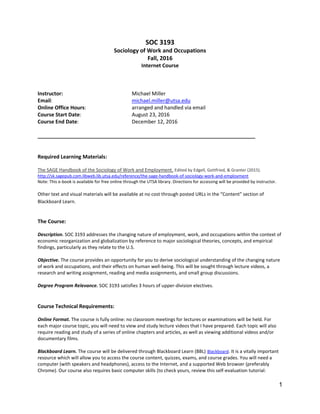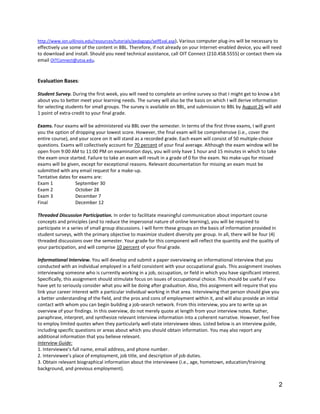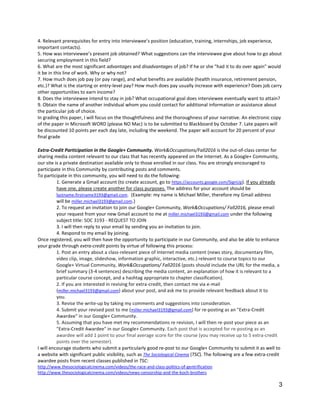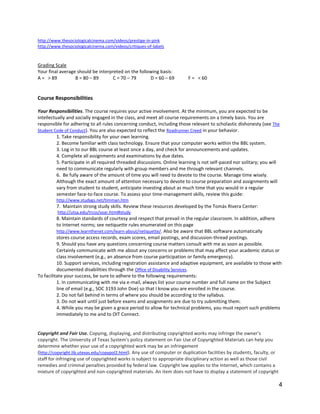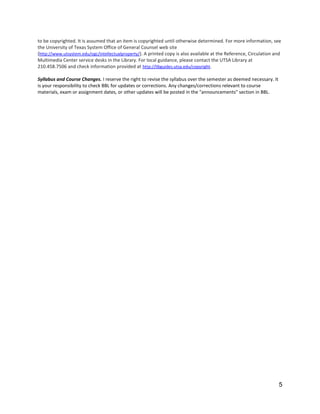This document provides an overview of the online sociology course "Sociology of Work and Occupations" being offered in the fall 2016 semester. It outlines course details like the instructor, dates, required materials, and technical requirements. Students will be evaluated based on exams, a discussion participation, an informational interview paper, and potential extra credit for participating in an online community. The responsibilities of both the instructor and students are defined.
